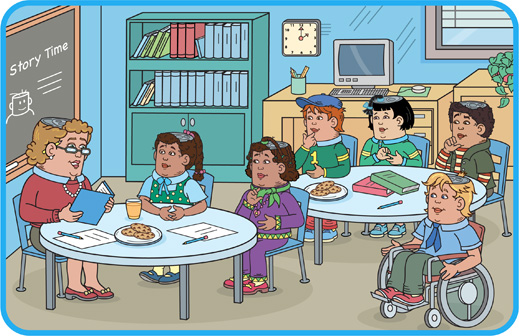 Telling The Truth
Telling The Truth
Miss Pat heard one of the “Can Dos” say something that wasn’t true. That was the second time this week she heard a student not tell the truth.
She thought to herself…time to tell a story about what can happen if you get to be known as a kid who doesn’t tell the truth.
“Please take your seats class,” said Miss Pat. “I want to tell you a story and then have you all write a paragraph about what you learned from the story.”
The “Can Dos” took their seats and Miss Pat began her story. “There once was a boy, the same age as all of you, who had a problem. His name was Jimmy and he didn’t always tell the truth.
Sometimes Jimmy told stories about his adventures with monsters and such. When he dropped something, he never took the blame. He always said someone else did it, or bumped into him and made him do it.
Jimmy’s friends stopped believing what he said because they couldn’t tell when he was telling the truth or when he was making things up, or just plain lying. Then they stopped playing with him.
One day, Jimmy made a mistake in class and his teacher asked him to tell the true story of what happened. Jimmy told the teacher what happened, not what he wished or wanted to have happen, but what really happened.
Then his teacher smiled at him and said, “Sometimes it’s good to use our imagination, but most times people want to hear what really happened. It is important to tell the truth.”
From then on, Jimmy told the truth, no matter how hard it was to take the blame for something he did, or didn’t do.
Every time he told the truth, he felt better about himself. Soon his friends began to trust him again, and played with him again.
Miss Pat looked around the room and saw that a few of the “Can Dos” had red faces and a few others looked a little worried.
“Class,” she said, “please write a paragraph about what you learned from the story I just shared with you.”
The room got quiet as the “Can DOS” began writing. When all the papers were in, Miss Pat allowed the “Can DOS” to color while she read the paragraphs.
Miss Pat was pleased to see that the class got the message of the story. It is always better to tell the truth.
Do you think it is always better to tell the truth?
